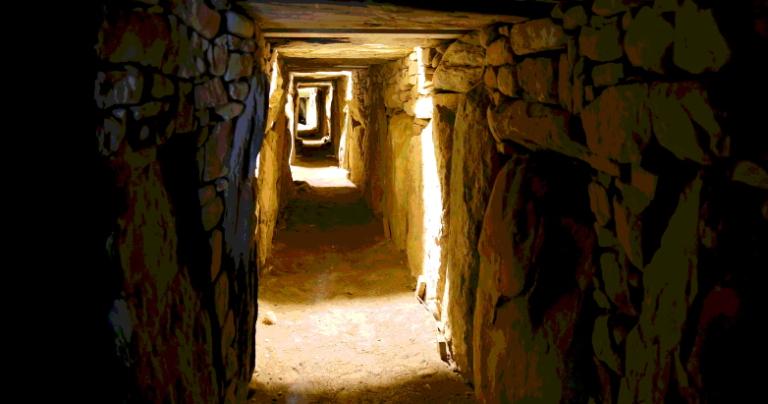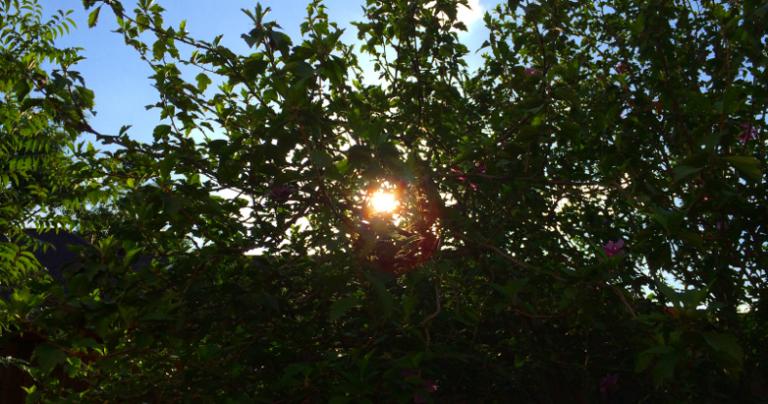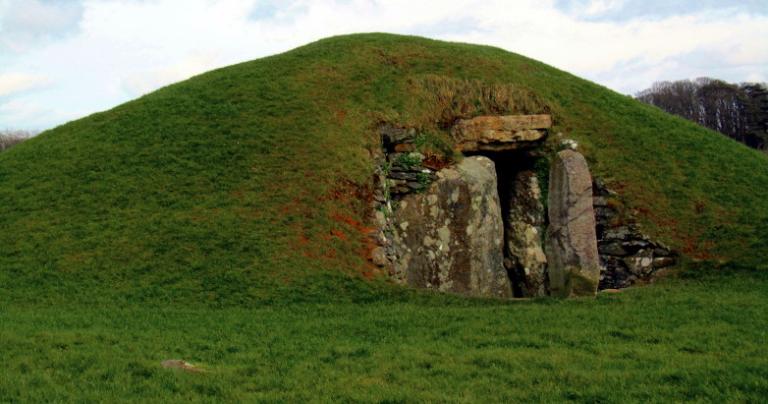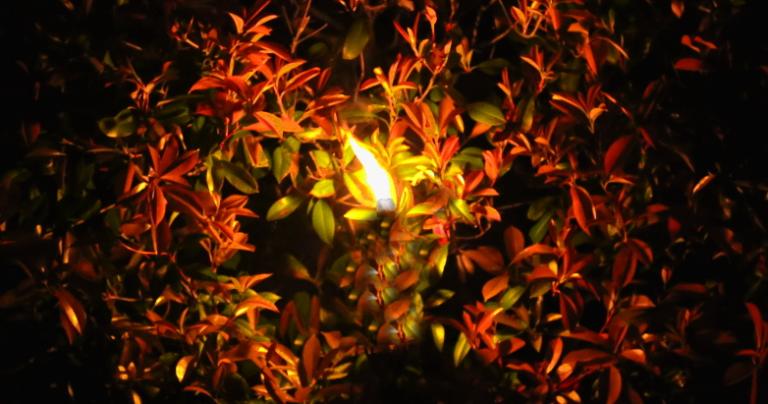I’ve been writing about the Otherworld a lot lately. It’s that time of year. Whether or not the Veil Between the Worlds is growing thinner – or if as I think, the Veil is shredded – Autumn and Samhain draw our thoughts to the realm of the Gods and ancestors.
Apparently, another Pagan with some very different ideas about the Otherworld has been writing about it too.
Let me be clear: if your belief system doesn’t include an Otherworld, I respect that. I think you’re wrong, but it’s not something that can be proved one way or another. It’s not like you’re arguing for Young Earth Creationism or some other fundamentalist perversion of rational thinking.
If you’re bombarded with experiences and intuitions that tell you there is an Otherworld and you choose to ignore them, I find that unfortunate, but I still respect your choice. Accepting the reality of the Otherworld and the Gods and spirits who inhabit it carries certain implications and obligations. If you don’t want to deal with them, that’s your business.
But if you want to reject the idea of an Otherworld, then kindly make your case for your preferred better version of this world and leave the sacred land of my Gods and ancestors alone.
How we know about the Otherworld
It’s interesting that this comes up just as I’ve been listing to Y Mabinogi. The first story of the first branch of The Mabinogi tells how Pwyll, Prince of Dyfed finds his way into Annwfn, the Celtic Otherworld. Pwyll is hunting, gets separated from his party, and ends up with a first-hand experience of the Otherworld and its king.
Much of what we know about the Otherworld comes from the stories of our ancestors. Now, we live in a society where a substantial number of people read the Bible as though it was a history book. Pagans of all people should not fall into that fallacy. But that doesn’t mean we should go 180 degrees in the other direction and assume these stories are complete works of fiction. Rather, they are myths that tell the stories of the Otherworldly experiences of our ancestors.
We can have our own experiences of the Otherworld. After years of telling people to never expect to see something that’s impossible, I saw something that was impossible… or so some would say. I’m still unsure if I saw an Otherworldly creature in this world, a this-world creature between the worlds, or a glimpse into the Otherworld. I just know I saw something that should not exist, but there it was.
We can experience the Otherworld through dreams and journeying, including journeying in ritual. We can visit the Land of the Dead (to a certain extent, for a short time) and see it for ourselves. Then when we make that journey a final time, we will not be afraid, because we will know where we’re going.
It is highly likely that the classic stories of our ancestors have similar origins to our own stories. They’re reports of what someone in ancient Wales (in this case) saw, heard, felt, and did. Have the stories been dramatized? Almost certainly. Have they been enhanced? Probably. Is there wisdom in them anyway? Absolutely. They are myths – stories that communicate timeless meaning and values.
Don’t fall into the trap of the biblical literalists, who insist that all stories are either perfect transcripts of exactly what happened or they’re meaningless. Religion is not just mythology, but mythology is an important part of religion.
What we know about the Otherworld
The Celtic Otherworld is no Christian Heaven – it is not a land of peace and perfection. Arawn, King of Annwfn, needs Pwyll’s help to defeat a rival king. Pwyll does so with one blow of his sword, then refuses to perform the coup de grâce and end his suffering. The Otherworld is much like our own, only more.
Are the various Otherworlds, Underworlds, and Afterlifes different cultures’ impressions of one wider reality? Are they different sections of one great Otherworld? Or are there multiple Otherworlds for multiple cultures and religions? I don’t know. As a polytheist who takes religious differences seriously, I lean toward different Otherworlds… though I suspect they – and we – are all connected at some incomprehensibly high level. In this world we are all different people in different lands, but we share the same planet.
Let’s not pretend we know more than we do. But let’s also not dismiss what we do know, especially what we can know from our own first-hand experiences.
Not perfect, but more
When we look into the Otherworld we see strange things. Not perfect things, but things that are more than they are here.
We see our ancestors, not wasted on their deathbeds as we last saw them but whole and healthy. We see heroes, filled not with perfection but with honor and valor. We see Gods, the mightiest of beings, who are filled with virtue. We see mystery and magic.
We see relationships that do not die, cauldrons that are never empty, and warriors that are committed to justice. We see things as they could be here.
And just as important, when we look into the Otherworld there are things we do not see: smart phones and the sweatshops that build them. Strip mines, fracking wells, and crude oil pipelines. McDonalds, McMansions, and non-stop advertising.
Sometimes we’re intrigued by the Otherworld because we have an Otherworldly experience. Sometimes it’s because we’re missing something here that we can find there. And other times there is something here we desperately want to get away from, even if we can’t always put our finger on exactly what that is.
The Otherworld changes you
A mild experience of the Otherworld will change you in a mild way. You become intrigued, you think about what happened and what it means, and you wonder how you can repeat the experience. Your world is ever so slightly more than it was before.
Of course, not everyone reacts positively to an Otherworldly experience. When challenged with something they’ve always been told isn’t possible, some people double down on skepticism and materialism. They rationalize their experience away, and insist that other peoples’ experiences aren’t real either.
A major experience of the Otherworld will change you in a major way. What you’ve been told all your life doesn’t matter anymore – what you’ve seen can’t be unseen. You still don’t know exactly what the Otherworld is and you still don’t know exactly what its residents want with you, but you have no doubt it’s all real – and it matters. Now you no longer fear death, because you know it’s just a portal into the next world. Now you’re immune to advertising (or at least, you can see through it) – a car is a way to get you where you need to go, not a statement of your worth as a person. Your priorities are changed.
Again, though, not everyone reacts positively. The implications of a real Otherworld, real Gods, and real spirits can be scary. Not just in a “this can’t be possible” sense but also in the sense of “what does this Battle Goddess want from me and what might She do if I fail?” Or sometimes, “if this is real then parts of the scary religion of my childhood might be real too” (parts of it are and parts of it aren’t – you have to figure out which is which).
“Mad, dead, or a poet” aren’t just pretty words. A massive first-hand experience of the Otherworld will send some people over the edge.
But we still live most of our lives in this world
Yes, an obsession with the Otherworld can turn into escapism. In the words of a famous fictional wizard “it does not do to dwell on dreams and forget to live.” Paganism insists this world is good. Even with hurricanes and wildfires and humans who kill other humans, life is good and something to be enjoyed and savored, not transcended.
The vast majority of people who have Otherworldly experiences manage just fine in the ordinary world. But now they bring an Otherworldly perspective to it, and in doing so they change the ordinary world and the mainstream culture a tiny bit. That’s how cultures are changed – one person at a time.
Some people are called to renounce this world and live in a permanent liminal state. These are the shamans and mystics. Not bored suburbanites with a certificate from Michael Harner, but people who died and came back and who regularly journey into the Otherworld for the benefit of their tribes, however they define them. If they’re lucky, they have supportive family and friends who take care of their mundane needs. If not, they often struggle to navigate the ordinary world and frequently end up medicated into submission… and both they and our world are worse for it.
Cultivate allies where you can find them
So if someone’s goal is to dramatically remake the ordinary world and they see a group of people who are dissatisfied with said ordinary world, whose experiences cause them to change their values, and at least in a small way change the way they live, you’d think they’d want these people as allies. You’d think they’d say “I’m going to change the world my way, you change it your way, and together we’re more than we are apart.”
Doesn’t that sound like a more effective approach than telling potential allies they’re deluding themselves?
Here’s what I know: I’ve seen the Otherworld. I’ve had first-hand experiences of Gods and spirits that are more real than anything in this world. Those experiences changed the way I see this world and the way I live in this world. My life is better for these experiences, and not in a small way.
So I’m going to continue my Otherworldly journeying. I’m going to keep writing about my experiences and encouraging others to explore their experiences. If that appeals to you, great. If it doesn’t, do your own thing instead – I wish you well.
I couldn’t escape the Otherworld if I wanted to, and I don’t want to.

















